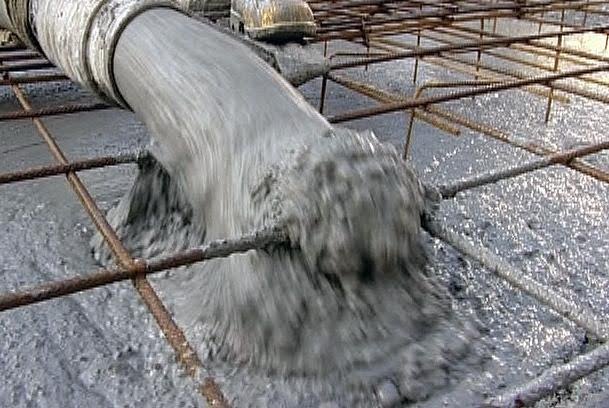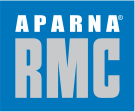Concrete Without Limits: The Innovation of Self-Compacting Concrete

September 21, 2024
Self Compacting Concrete (SCC) is rapidly gaining popularity in the construction industry, and for good reason. This innovative material has redefined the way concrete is used, improving both efficiency and quality. In fact, Self Compacting Concrete has become a go-to option for many builders due to its ability to flow into intricate spaces without the need for mechanical vibration. With self-levelling properties, it’s clear why Self Compacting Concrete is a trailblazer in today’s construction world.
What Sets Self Compacting Concrete Apart?
Unlike traditional concrete, Self Compacting Concrete is designed to compact itself without the use of vibrators. The formulation behind SCC was developed in Japan in the late 1980s, primarily to address the shortage of skilled labour in construction. Engineers aimed to create a concrete that would flow into every corner of formwork without the need for excessive manpower or machinery.
SCC is crafted with a higher proportion of fine materials and superplasticizers, making it extremely fluid yet stable. This unique combination allows it to fill complex moulds and tightly packed reinforcement without leaving any air gaps.
Where Can You Use Self Compacting Concrete?
Self Compacting Concrete is versatile and can be used in a wide range of applications. Its self-levelling properties make it ideal for:
- High-rise buildings: SCC reduces the need for scaffolding and vibrators, making it easier to use in tight spaces.
- Bridges and tunnels: Its ability to flow into intricate spaces without manual compaction helps when constructing complex structures.
- Architectural forms: SCC works wonders in projects requiring intricate details or unusual shapes.
- Repair works: It’s especially useful in rehabilitating structures where accessibility is a challenge, as it can fill voids with ease.
Advantages of Self-Compacting Concrete
One of the biggest advantages of Self Compacting Concrete is its ease of use. Here are a few standout benefits:
- Reduced labour and time: Since SCC doesn’t need vibration for compaction, it cuts down on the need for skilled labour and speeds up the construction process.
- High-quality finish: SCC produces smooth surfaces with fewer defects, reducing the need for additional finishing.
- Durability: Self Compacting Concrete has a higher density and fewer voids, which leads to greater durability over time.
- Noise reduction: Traditional concrete often requires vibrators, which are noisy and disruptive. SCC eliminates this noise.
- Cost-effective in the long run: Although the initial price per cubic metre of Self Compacting Concrete is typically higher than regular concrete, its time-saving benefits and reduced labour costs can result in long-term savings.
Industry Perspectives and Statistics
The adoption of Self Compacting Concrete is on the rise across the globe. According to a market report by Technavio, the SCC market is expected to grow by over 5% annually between 2020 and 2025. This increasing demand reflects its growing reputation for enhancing efficiency, quality, and sustainability in construction.
Additionally, a study by the European Federation of National Associations Representing for Concrete (EFNARC) found that using SCC in prefabrication leads to a 30% reduction in production time and a significant improvement in surface finish quality.
The Origins and Motivation Behind SCC
Self Compacting Concrete was developed as a response to the challenges faced by the construction industry in the late 20th century. With a shortage of skilled labour and rising demand for higher-quality construction, engineers in Japan sought a solution that would require less human intervention while ensuring high standards of quality. The result was SCC, which has since become an industry standard for projects requiring high performance and precision.
Pricing: How Does SCC Compare?
While Self Compacting Concrete does come at a higher initial price—typically 20-30% more expensive than traditional concrete—the benefits often outweigh the cost. When you factor in the savings on labour, machinery, and time, the overall project costs can be significantly reduced. Additionally, the long-term durability and lower maintenance costs of SCC can make it a more economical choice for certain projects.
Conclusion: Why Self-Compacting Concrete is the Future
Self Compacting Concrete has quickly established itself as a revolutionary material in the construction world. Its ability to streamline processes, improve quality, and reduce labour makes it a valuable asset for both small and large-scale projects. While the initial costs may be slightly higher, the long-term savings and increased efficiency it provides make Self Compacting Concrete an industry favourite.
From bridges to skyscrapers, this trailblazing material is shaping the future of construction. As more contractors and engineers embrace the benefits of SCC, it’s clear that Self Compacting Concrete is here to stay, paving the way for smarter, faster, and more durable construction methods.
Here, at Aparna RMC we are dedicated to pioneering industry trends and developments to bring our customers the best without missing out on efficient construction methods.
Aparna RMC manufactures and develops customised solutions based on thorough research and extensive knowledge of concrete technology.
Aparna RMC is known for superior service enabled by digital tools, along with an ISO Certified process that guarantees consistent quality and timely delivery across its 31 plants spread across 4 states.
Our signature product, SwiftFlowCrete self-compacting concrete, offers cutting-edge innovation, providing superior surface finishes and ultra-strength for structures. With a commitment to high-performance and sustainability, FlexiCrete is designed to meet the most demanding project needs, ensuring exceptional durability and workability.
